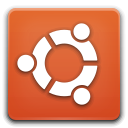Canonicals’ offer of desktop integrated apps is a step forward in Ubuntu’s growth. The tool will now have all of your favorite sites and apps running from the desktop itself rather than a host of tabs on your browser. This is aimed at providing a more native Ubuntu-type user-experience allowing better workflows on desktops.
The developers, Canonical, believe this feature is more than just a ‘glorified bookmark’ and supports other functions as well. These WebApps will now have local app features such as tweaking the sound menu or uploading from desktop directly on social media sites. WebApps integration is aimed at blurring the line between applications working from desktop shortcuts and browser launched apps.
Perhaps a very ‘defining’ feature of WebApps integration is the availability of Ubuntu technology such as app menu; Head Up Display (HUD) which uses a navigation-based search (where input is voice-driven or typed-in) instead of traditional drop-down and scrolled menus; Messaging Menu, Quicklists, Sound Menu and others.
Taking WebApps integration to the next level are the already available 40 and more apps for Twitter to Last.FM to Facebook and more.
WebApps are all set to appear in October release of Ubunt 12.10 and will also have an add-on feature for 12.04 in the future as this version is a long-term support release.
Gmail and Ebay already have a WebApp that will allow users to receive updates and notifications on messages through Ubuntu messaging indicator and will also have an icon on the operating system’s Launcher.
While this may not be one of the earliest WebApps, since these were available before Epiphany and other browsers came through. However, the newest form of WebApps differs in the sense that it is integrated within the Operating System.
The most appealing feature of WebApps here is the customization of own WebApps. The scope of WebApps seems unlimited and the possibilities of personalizing websites for notifications of updates etc could indeed become a distinct possibility.
The first browsers to be supported with WebApps will be Firefox and Chromium. This would in turn likely lead to support for Epiphany, Midori and others as well.
However, there is a line of thought is that perhaps others like Fogger and Gwoffice have stolen a march over WebApps. At the same time, competitive products could prove to be to the advantage of the community as there is greater choice, just as it is with web browsers, clients or music players, currently available.





